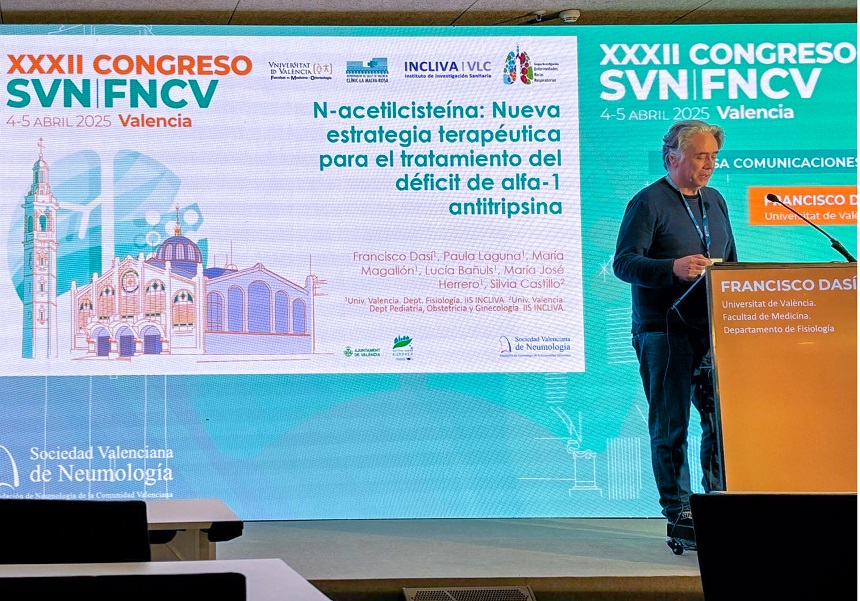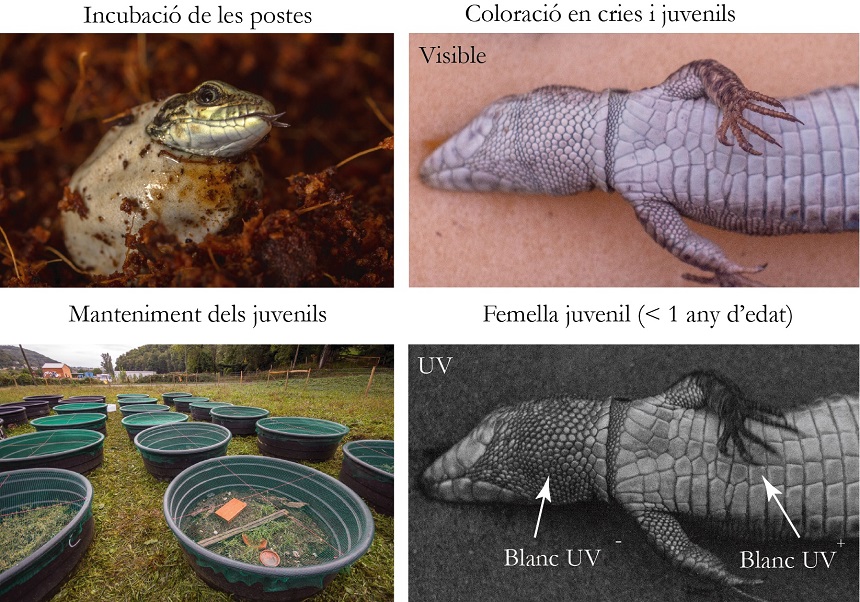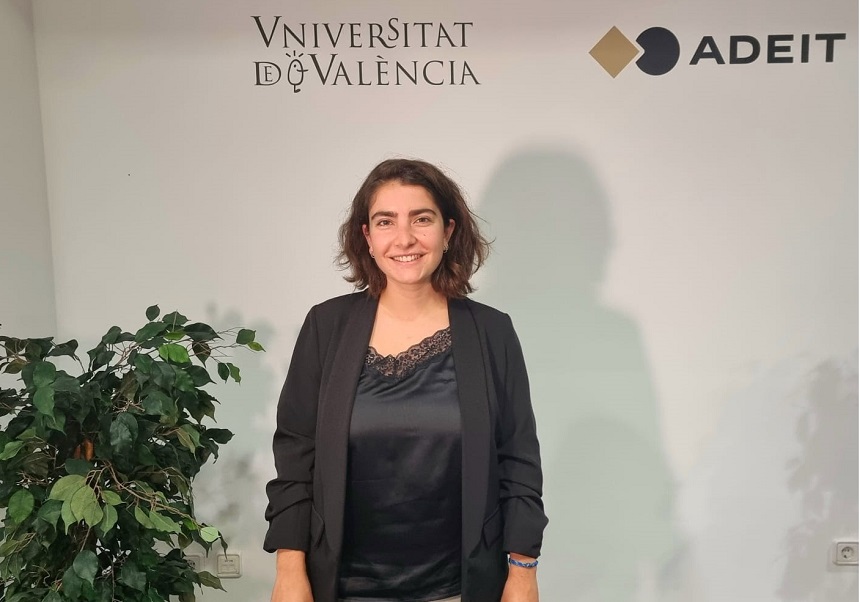A new therapeutic strategy is being investigated to treat alpha-1 antitrypsin deficiency (AATD), a rare hereditary disease
- Scientific Culture and Innovation Unit
- April 8th, 2025

A study conducted by the University of Valencia (UV), the INCLIVA Health Research Institute, the Clinical University Hospital of Valencia and La Fe Hospital has analysed N-acetylcysteine (NAC) as a new therapeutic strategy for the treatment of alpha-1 antitrypsin deficiency (AATD). The results of this work were presented at the latest congress of the Valencian Society of Pneumology.
AATD is a rare hereditary disease that predisposes individuals to pulmonary emphysema (a chronic obstructive pulmonary disease that damages the alveoli and makes breathing difficult) and various liver conditions such as cirrhosis and hepatocellular carcinoma.
The Z-AAT mutation causes the polymerisation (a chemical process that joins small molecules, known as monomers, into larger molecules called polymers) of the AAT protein and its accumulation in hepatocytes, which triggers a systemic inflammatory response. Currently, the only pharmacological therapy available to treat emphysema is AAT augmentation therapy. There are no approved treatments for the liver disease, aside from liver transplantation.
The increase in oxidative stress observed in patients with AATD suggests that therapies with antioxidants such as N-acetylcysteine (NAC) could play a therapeutic role by reducing intracellular polymerisation and increasing the secretion of Z-AAT. The aim of this study was to assess the effect of NAC on the expression, polymerisation, secretion and oxidative state of Z-AAT in a cellular model of the disease. The results have shown that NAC could have a therapeutic role in AATD by increasing the expression and secretion of AAT and reducing its oxidation. These findings support the need for further research using animal models.
The researchers from the UV involved in the study were Francisco Dasí and Silvia Castillo Corullón, from the departments of Physiology and Paediatrics respectively, and members of the INCLIVA Rare Respiratory Diseases Research Group. Also participating was María José Herrero, from the Department of Pharmacology (UV) and member of the Pharmacogenetics platform of the IIS La Fe.
The research used genetically modified HEK293 cells to express the pathological Z-AAT variant. The study was funded by grants from the Valencian Society of Pneumology 2023 and the Generalitat Valenciana (CIAICO/2023/099).
Categories: Investigació a la UV , Facultat de Medicina i Odontologia , Recerca, innovació i transferència , Fisiologia , Farmacologia , Pediatria, Obstetrícia i Ginecologia , Difusió i comunicació científica , Grups de recerca , Internacionalització recerca , Finançament recerca , Producció científica
















